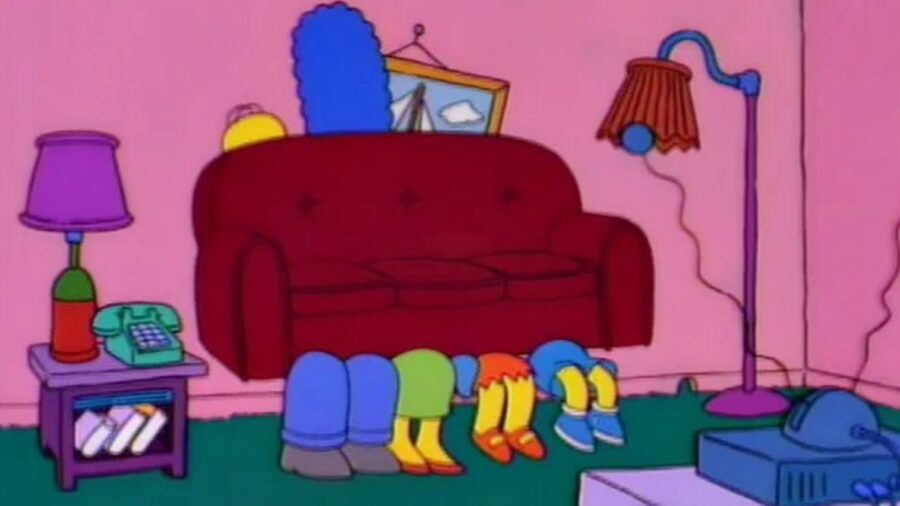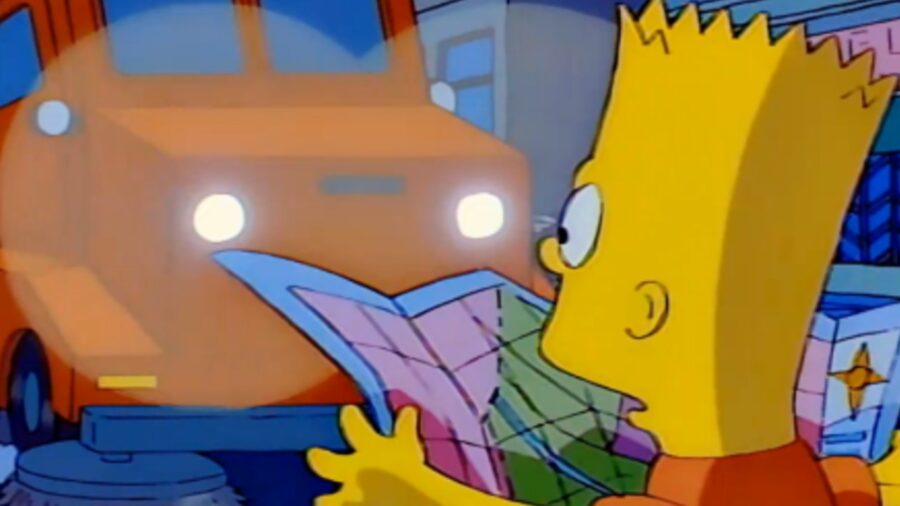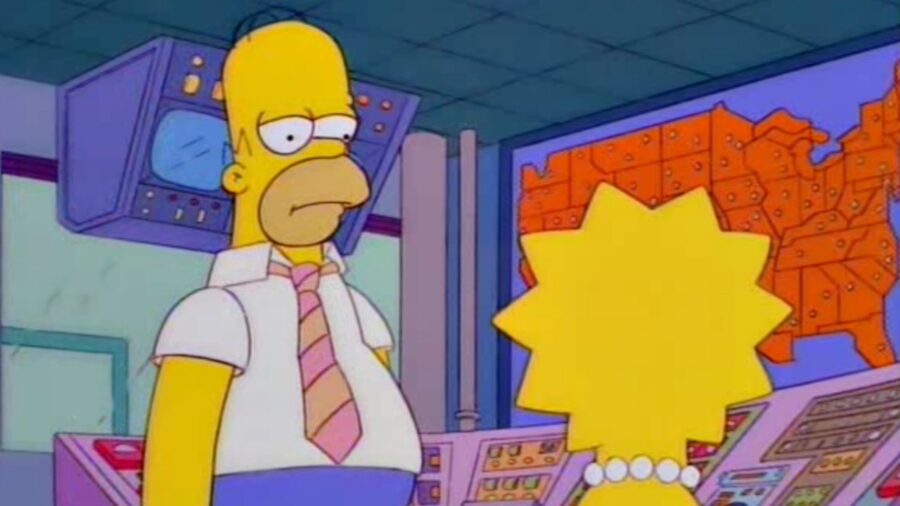By Robert Scucci
| Published

When The Simpsons premiered in 1989, it changed sitcoms forever with its unique joke format that now seems lost to time because it’s been ages since the series saw its Golden Era. In direct defiance to wholesome family sitcoms like Family Ties and The Waltons, among countless other series that used the setup/punchline format met with canned laughter that’s still used to this day, The Simpsons resonated so well with audiences because of its willingness to deliver jokes at such an alarming rate through a combination of dialogue and visual gags that there simply was no room for laugh tracks to tell the audience when they were supposed to think something was funny.
In fact, episodes from The Simpsons’ Golden Era would undergo dozens upon dozens of revisions to make sure that not a single second of run time was wasted, resulting in the unique joke format that elevated the series to legendary status because the humor was so dense and unheard of at the time that every episode from this era can be re-watched indefinitely without ever getting old.
The Golden Era Simpsons Joke Format

YouTube creator Super Eyepatch Wolf brilliantly breaks down the joke format that made The Simpsons of yesteryear so special with his video, “The Fall of the Simpsons: How It Happened,” which is a must-see for any diehard fan of the Simpson clan.
Using “Bart Sells His Soul” as the primary example of this joke format’s execution, we bear witness to why The Simpsons would be ruined by the canned laughter that was so prevalent in live-action sitcoms of the time, and why this kind of rapid-fire delivery landed so well when no other show was doing it at the time.
When Bart Simpson finds himself experiencing an existential crisis after selling his soul to Milhouse for five dollars, he takes matters into his own hands by riding his bicycle to reclaim what’s his.
In a matter of 15 seconds, five jokes take place that are paced so relentlessly that you simply have to see it to believe it.
During this timeframe, Bart’s bike is run over by a streetsweeper, leading the viewer to believe that his bike was destroyed (joke one). Bart is relieved to find out that the streetsweeper simply shined his bike and no damage occurred (joke two), only before the bike falls apart because it was, in fact, destroyed (joke three). After hearing the maniacal cackle of the man driving the streetsweeper, Bart learns that the man aimed to destroy this bike for his own amusement (joke four), only before driving the vehicle down a subway station stairwell and exploding (joke five).
This exercise in escalation in The Simpsons is indicative of a joke format that is too complex to be executed with a single draft for each episode because there’s so much going on.
Competing Sitcoms Didn’t Stand A Chance

Changing comedy forever with its unique joke format that’s peppered throughout its Golden Era, The Simpsons blazed a new trail that would make every other competing sitcom seem underwhelming by comparison.
My personal favorite instance that demonstrates how prevalent this joke structure was The Simpsons’ Golden Era can be found in Season 7’s “Bart on the Road,” when Lisa tells Homer that Bart procured a fake ID, rented a car, and drove with his friends to the World’s Fair in Knoxville, Tennessee, only to be stranded with no way to get home after spending all of his money.
In another stunning fifteen-second sequence of events, Homer’s face becomes overcome by darkness, he excuses himself, throws on a hazmat helmet, screams until it fogs up, calmly puts the helmet back where it belongs, and flatly tells Lisa that he will scrounge up the money to get Bart home so he can murder him. The “punchline” in this instance, is an upset Lisa lamenting that if her father murders her brother, then her brother will know she ratted him out. Once again, this joke format packs an unthinkable amount of humor into a very short amount of time, leaving no room for canned laughter because of its frenetic pacing.
So, the next time you watch The Simpsons, keep this joke format in the front of your mind because it not only separates the series’ Golden Era from its more modern (read: mediocre) iterations, it absolutely blew out its contemporaries because no other mainstream show was delivering jokes like this at the time.




